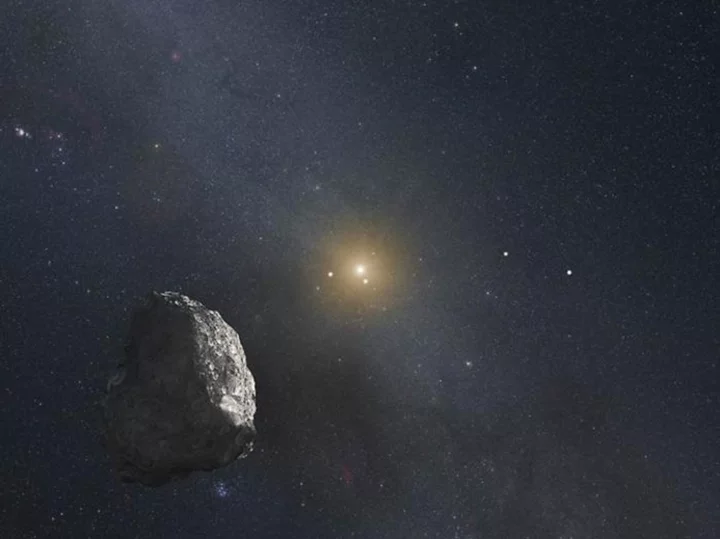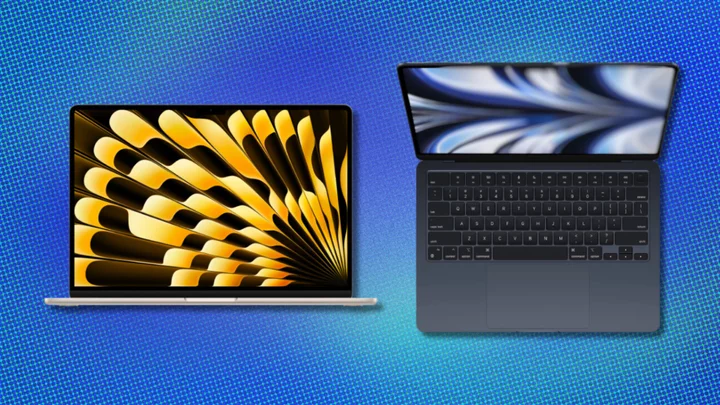‘Planet Nine’ hidden world at the edge of our solar system could actually be something else, scientists say
A supposed “planet nine” that lies hidden at the edge of our solar system could actually be something else entirely, according to scientists. The unexplained movement of objects at the edge of our solar system has led some to propose that they are being influenced by another world, hidden in the dark distance of our planetary neighbourhood, that they have referred to as planet nine. Objects at the far reaches of the solar system behave as if they are being pulled around by an object that we cannot see, which is probably another planet, they suggest. But a new study by researchers Harsh Mathur, a professor of physics at Case Western Reserve University, and Katherine Brown, an associate professor of physics at Hamilton College, say that those movements are instead the result of a modified law of gravity. The scientists plotted what would happen if the objects were being governed by a theory known as Modified Newtonian Dynamics or MOND. That suggests that Newton’s usual gravity only works up to a point – that in the outer regions of galaxies, for instance, gravity behaves in unusual ways. They found that the data lined up, and applying the MOND theory to the existing observations seemed to predict them exactly. “The alignment was striking,” said Professor Mathur. They note that the findings do not necessarily rule out planet nine – or another explanation for what is going on. Some researchers have suggested other explanations for what the objects could be, for instance, while others have suggested that the claimed effect is just the result of when the distant objects tend to be observed. “Regardless of the outcome, this work highlights the potential for the outer solar system to serve as a laboratory for testing gravity and studying fundamental problems of physics,” said Professor Brown. The findings are reported in a paper, ‘Modified Newtonian Dynamics as an Alternative to the Planet Nine Hypothesis’, published in The Astronomical Journal. Read More Watch live: Amazon launches first internet satellites aiming to rival Starlink Stargazing in October: A sleeping giant Prada to design Nasa’s next-gen space suits for Artemis astronauts

A supposed “planet nine” that lies hidden at the edge of our solar system could actually be something else entirely, according to scientists.
The unexplained movement of objects at the edge of our solar system has led some to propose that they are being influenced by another world, hidden in the dark distance of our planetary neighbourhood, that they have referred to as planet nine. Objects at the far reaches of the solar system behave as if they are being pulled around by an object that we cannot see, which is probably another planet, they suggest.
But a new study by researchers Harsh Mathur, a professor of physics at Case Western Reserve University, and Katherine Brown, an associate professor of physics at Hamilton College, say that those movements are instead the result of a modified law of gravity.
The scientists plotted what would happen if the objects were being governed by a theory known as Modified Newtonian Dynamics or MOND. That suggests that Newton’s usual gravity only works up to a point – that in the outer regions of galaxies, for instance, gravity behaves in unusual ways.
They found that the data lined up, and applying the MOND theory to the existing observations seemed to predict them exactly. “The alignment was striking,” said Professor Mathur.
They note that the findings do not necessarily rule out planet nine – or another explanation for what is going on. Some researchers have suggested other explanations for what the objects could be, for instance, while others have suggested that the claimed effect is just the result of when the distant objects tend to be observed.
“Regardless of the outcome, this work highlights the potential for the outer solar system to serve as a laboratory for testing gravity and studying fundamental problems of physics,” said Professor Brown.
The findings are reported in a paper, ‘Modified Newtonian Dynamics as an Alternative to the Planet Nine Hypothesis’, published in The Astronomical Journal.
Read More
Watch live: Amazon launches first internet satellites aiming to rival Starlink
Stargazing in October: A sleeping giant
Prada to design Nasa’s next-gen space suits for Artemis astronauts









